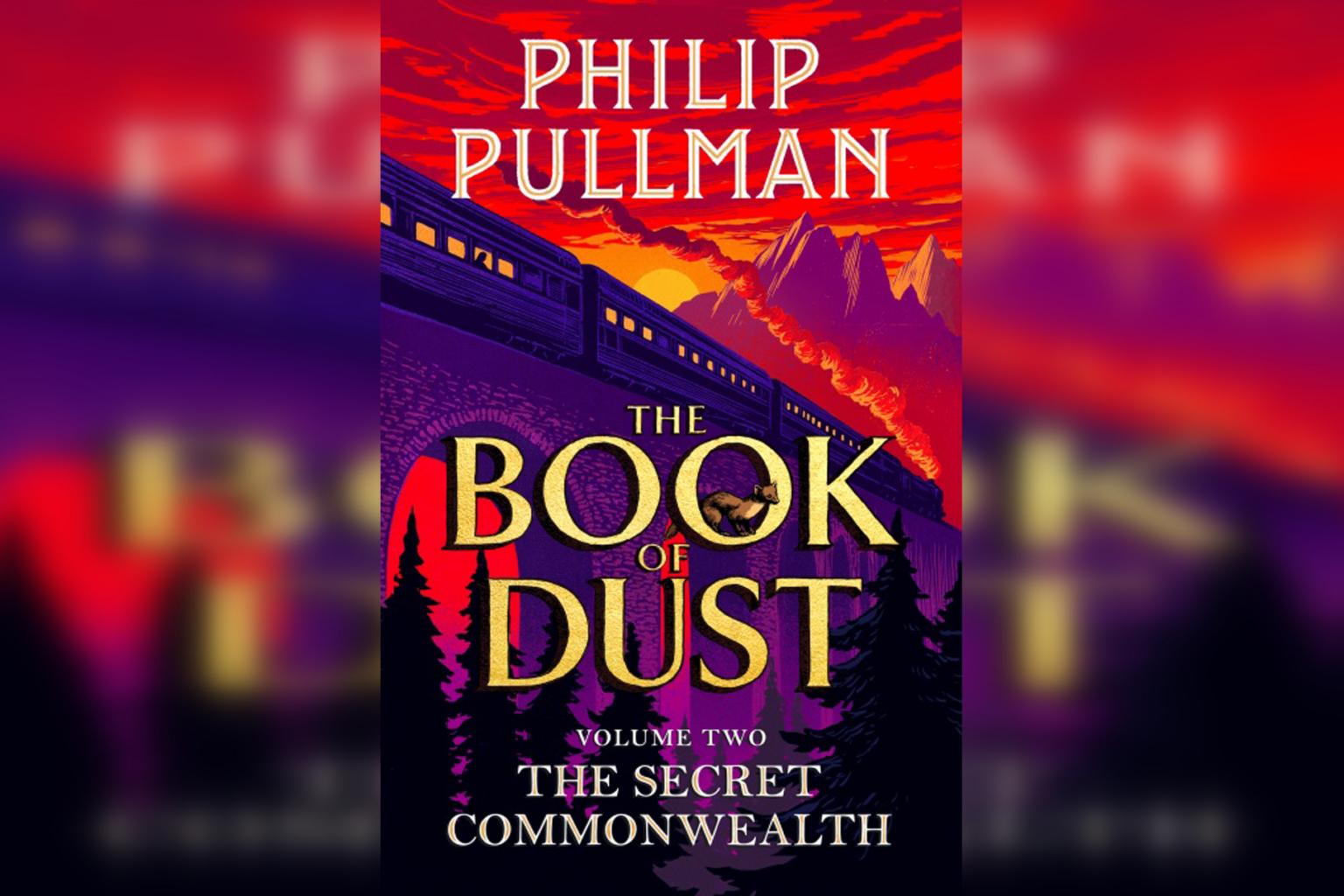Book review: Philip Pullman's The Secret Commonwealth returns magic to grown-up readers
Sign up now: Get ST's newsletters delivered to your inbox

Cover of The Book Of Dust #2: The Secret Commonwealth, by Philip Pullman.
PHOTO: DAVID FICKLING
Follow topic:
FICTION
THE BOOK OF DUST #2: THE SECRET COMMONWEALTH
By Philip Pullman
David Fickling Books/Paperback/ 704 pages/ $33.71/ Major bookstores
4 stars
Fans of Philip Pullman might have been thrilled last year at the British author's return to the world of his celebrated fantasy trilogy His Dark Materials after nearly 20 years.
But that book, La Belle Sauvage, was just a prequel. It is The Secret Commonwealth, in which beloved heroine Lyra Silvertongue reappears as a grown woman, which they were really waiting for.
They might be dissatisfied at the outset by this Lyra, whom they left as an effervescent 12-year-old and meet again as a prosaic 20-year-old Oxford University student.
She has fallen out with her daemon Pantalaimon, who takes the form of a pine marten. Daemons, in this universe, are the animal manifestations of people's souls, inextricable from the rest of the self.
In The Amber Spyglass (2000), Lyra and Pan underwent an ordeal that allows them to be apart from each other, unlike most humans. But now, some inexpressible rift has occurred in their bond and one day Lyra wakes up to find Pan gone.
Displaced from the college where she has lived all her life and hunted by the religious authorities that hold her world in their terrifying grip, Lyra sets off on an odyssey through Prague, Constantinople and Smyrna in search of a mythical place, the Blue Hotel, where she hopes to be reunited with Pan.
Though The Secret Commonwealth opens dramatically with a murder, it moves ponderously for its first half. There is plenty of philosophy and a lot of subtle espionage. A budding and as yet fairly unconvincing romance is likely to have fans of the original trilogy up in arms.
But when Lyra embarks on her journey of literal self-discovery, the reader is abruptly submerged once more in the magnificence of Pullman's world-building.
The "secret commonwealth" takes its name from Robert Kirk's fairy folklore treatise of the same title. Here, it is a collective term for those things in heaven and earth not dreamt of in our philosophy, as Shakespeare's Hamlet would say, from the will o' the wykes of the marshes to the jinn of the desert, perhaps even daemons themselves.
Pullman's insight into daemons here can be read as a take on the issue of mental health through the lens of fantasy. He shows people harming their daemons, being abandoned by or traumatically ripped from them. Those without daemons are seen as "mutilated" and face enormous stigma from "whole" people. It is a simple, powerful way of epitomising the struggles - and survival - of a mind working against itself.
La Belle Sauvage was attuned to the times; The Secret Commonwealth is even more painfully so. There is a refugee crisis arising from terrorist attacks on rose gardens, a key industry in Central Asia. One such refugee is Nur Huda el-Wahabi, named for a schoolgirl who died in London's 2017 Grenfell Tower fire.
In Oxford, ordinary citizens as young as 11 are detained without trial. Lyra, a woman travelling alone, must confront the sickening danger of sexual violence.
This is not children's fantasy. This is fantasy for those who believed in magic as children and grew up to find a world so full of injustice as to defy logic. Where now is the secret commonwealth, the path through the unknowable back to the knowing of ourselves? We can only keep looking, with Pullman's words as golden compass.
If you like this, read: Jonathan Strange & Mr Norrell by Susanna Clarke (Bloomsbury, 2004, reissued 2017, $19.94, available for order from Books Kinokuniya). Two magicians emerge in 19th- century England, the fussy Mr Norrell and his brilliant novice Jonathan Strange, but they become disastrously caught up in the affairs of the fairy folk.

